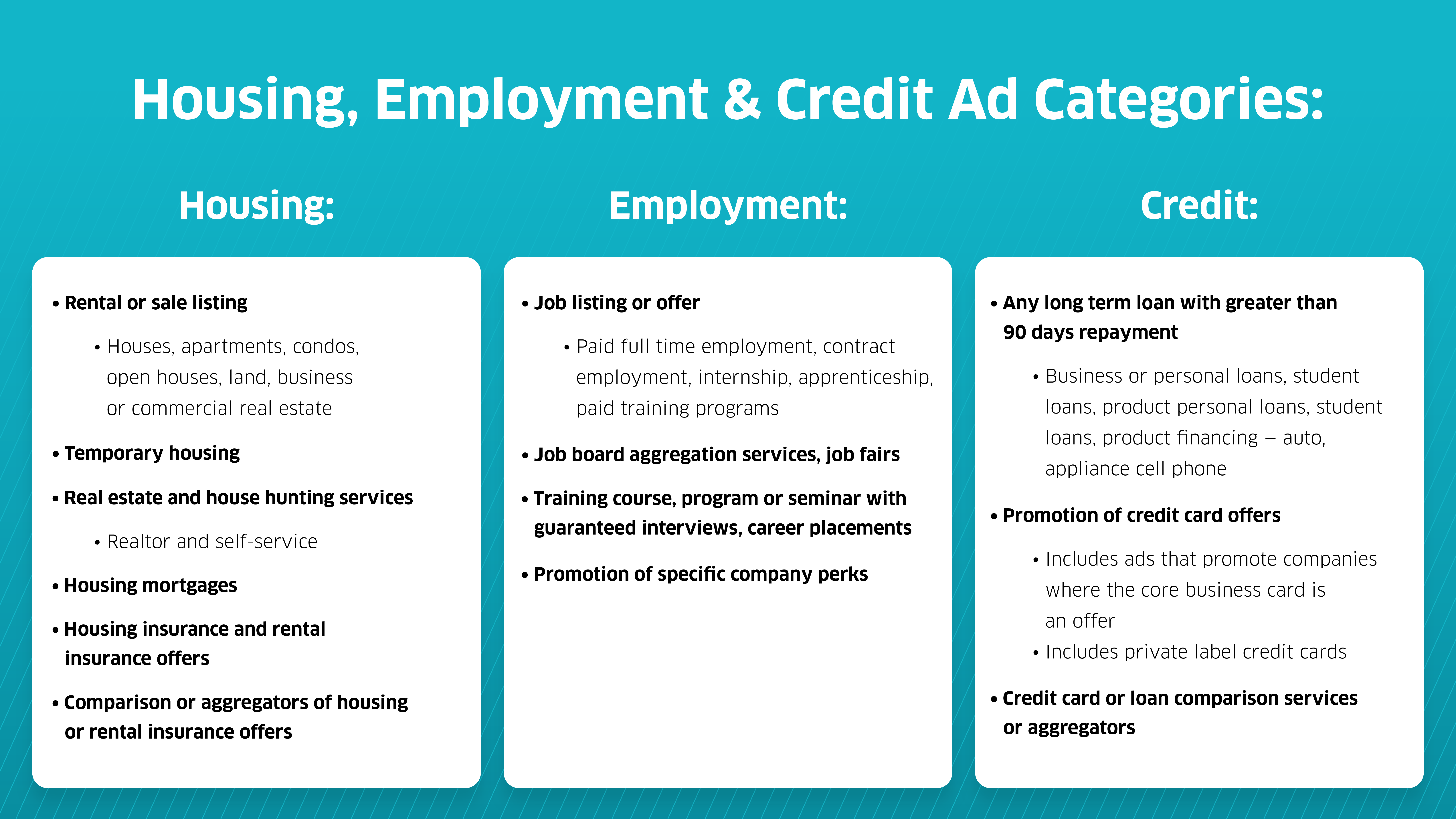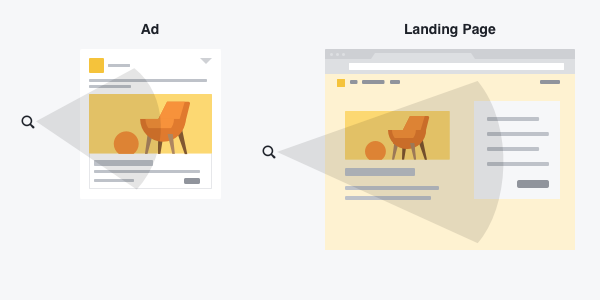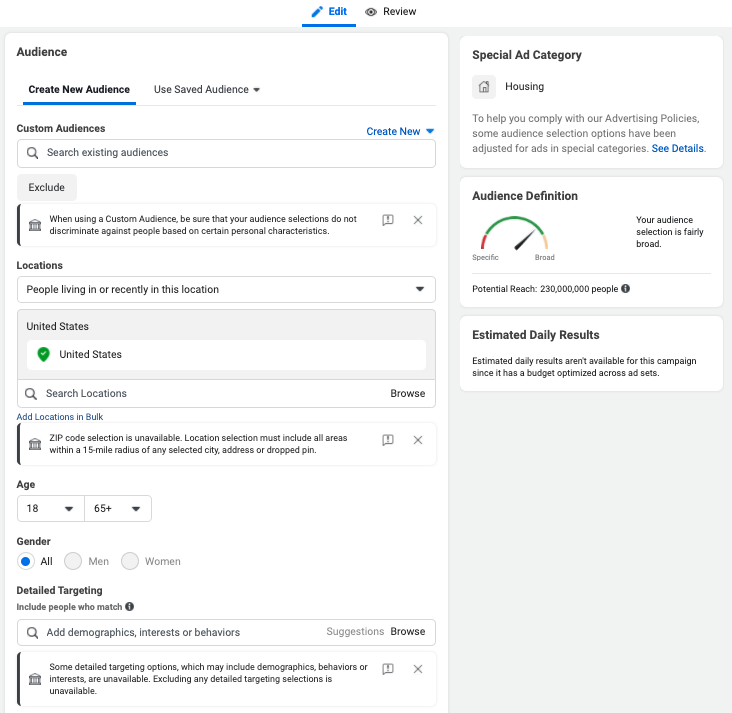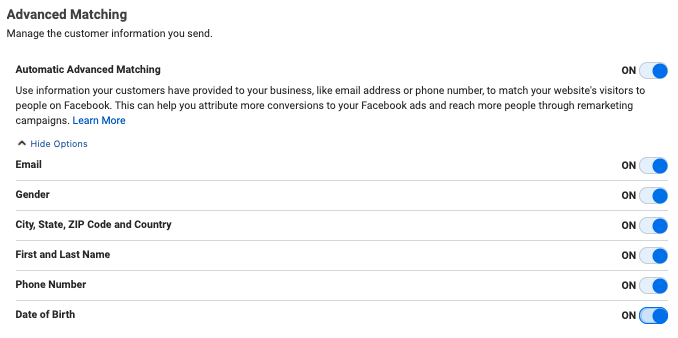These Facebook Targeting Updates to Housing, Employment and Credit (HEC) Could Apply to You

During the last year, Facebook has made drastic changes to its Ads Manager’s targeting options for advertisers, particularly for those serving ads in the housing, employment and credit industries (HEC).
These changes are the result of settlement agreements with leading civil rights organizations, who brought multiple lawsuits against the social media platform regarding discrimination. Originally announced in March of 2019, the platform stated that these changes were being made in an effort to do more to protect against discrimination in these three specific indistries.
Today, we’re breaking down everything you need to know about HEC ad regulations and how they could affect your Facebook campaigns.
What’s Happening Here Can be Boiled Down to Four Points:
- There is a new ad policy for HEC ads
- Advertisers are now required to self-identify that content fits into this new Special Ad Category
- These types of ads have limited targeting options
- There is additional transparency for housing HEC ads in the Facebook Ad Library
What Triggers HEC?
If you are creating a campaign that contains ads that offer housing, employment or credit, you must choose the category that describes your ads. This delineation limits the selection tools advertisers have for targeting all in order to help protect Facebook users from unlawful discrimination.
It is extremely important that you select the correct category of HEC ad that you’re running. See below for segmentations.

The Review Process Will Be Different
Facebook is using machine-learning models along with human teams to review ads. Images, text, targeting, positioning and the content on the landing page is also taken into consideration when going through the review process. The ad then may not be approved if the landing page doesn’t match the product or service in the ad, isn’t fully functional or doesn’t comply with Facebook’s Ad Policies.

Targeting Option Changes
Many of the detailed targeting options are no longer visible when creating a Special Ad Category campaign. The targeting that is available is visible along with their respective restrictions.
- Removed ability to target by age, gender and zip code.
- Available Interest targeting options have been substantially reduced (for inclusion). Additionally, any detailed targeting options appearing to pertain to protected classes will not be available.
- Removed ability to exclude Interests and Locations from targeting options.
- Location targeting now requires a minimum 15-mile radius for city/town targeting and drop pins.
- Most Important: Advertisers will no longer have access to Lookalike Audiences if you are creating HEC ads.
- Instead, advertisers will need to create Special Ad Audiences. In essence, these are Lookalike Audiences that don’t take gender, age, ZIP codes or other similar categories into consideration.
To put it simply, there are basic targeting options with Facebook’s marketing platform that will not be available for HEC. This is the new view you’ll see, with everything you can no longer use locked or caveated in some capacity.
These updates in the Ads Manager flow went into effect on August 26, 2019, a date that is branded in my brain. I remember coming into work that morning to find an email from our representatives with bolded, yellow-highlighted letters at the top directing us to make these changes ASAP to prevent ads being paused for noncompliance.

Final Tips for HEC Advertisers
Since many of the most valuable data points will no longer be available to you, you’ll need to get creative with your targeting.
1. Use your first-party data to create smart Special Ad Audiences. Though you can no longer create traditional lookalike audiences, you can create Special Ad Audiences from the typical custom audiences you have created in your Audience hub of Ads Manager.
2. Turn on Advanced Matching. Advanced Matching can help increase the number of attributed conversions from your campaigns, along with increasing your Custom Audience size and lowering your cost per conversion.
- Your developer can set up manual Advanced Matching by editing your base pixel code or you can set up Automatic Advanced Matching, no code needed. All you need to do in order to activate Automatic Advanced Matching is hop into the Events Manager, select the pixel you wish to modify, toggle to settings and scroll down until you see the Advanced Matching portion.

3. Avoid general creative flags. Avoid making promises of money of any kind and don’t use misleading landing pages, as those follow the same standard requirements that your ads have to follow under Facebook’s ad policies.
4. Talk to your Facebook rep. If you get ad disapprovals in relation to HEC and you are not serving ads related to HEC, reach out to your rep to see if your ads can be manually reviewed by a human versus the platform’s AI review process.
5. Even if you are not creating ads specifically for HEC, but you’re an advertiser who plans to create or edit ads about social issues, elections or politics in the United States, you need to take a couple extra steps as well. You will need to get authorized and have “Paid for by” disclaimers on ads in order to run them.
Continue to Expect the Unexpected and Be Patient
When HEC hit one of our advertisers, our cost per conversion increased by over double, and the conversion rate dropped by over half. Within a few weeks, our performance started to rise back up to normal as the account’s Special Ad Audiences gained more learnings.
We worked closely with our Facebook Representatives to make targeting updates where needed and worked to decrease the initial audience overlap experienced by launching brand new audiences that had little to no time to ramp up before being put into action.
Despite Facebook making Special Audiences sound a lot like Lookalikes, they are clearly different and will affect each account differently.
Speaking of expecting the unexpected, we know more targeting options will go away. Facebook is making further updates to detailed targeting. Many of the options were no longer available for selection in new campaigns being created starting on August 25, 2020. Existing ad sets containing these targeting options can, however, continue to run until January 25, 2021. Some of your ad sets may need to be modified to account for this because after that date, ad sets may either be paused and previously selected detailed targeting options will be removed.
The targeting updates made to HEC categories is only the tip of the iceberg.

Comments
Add A Comment